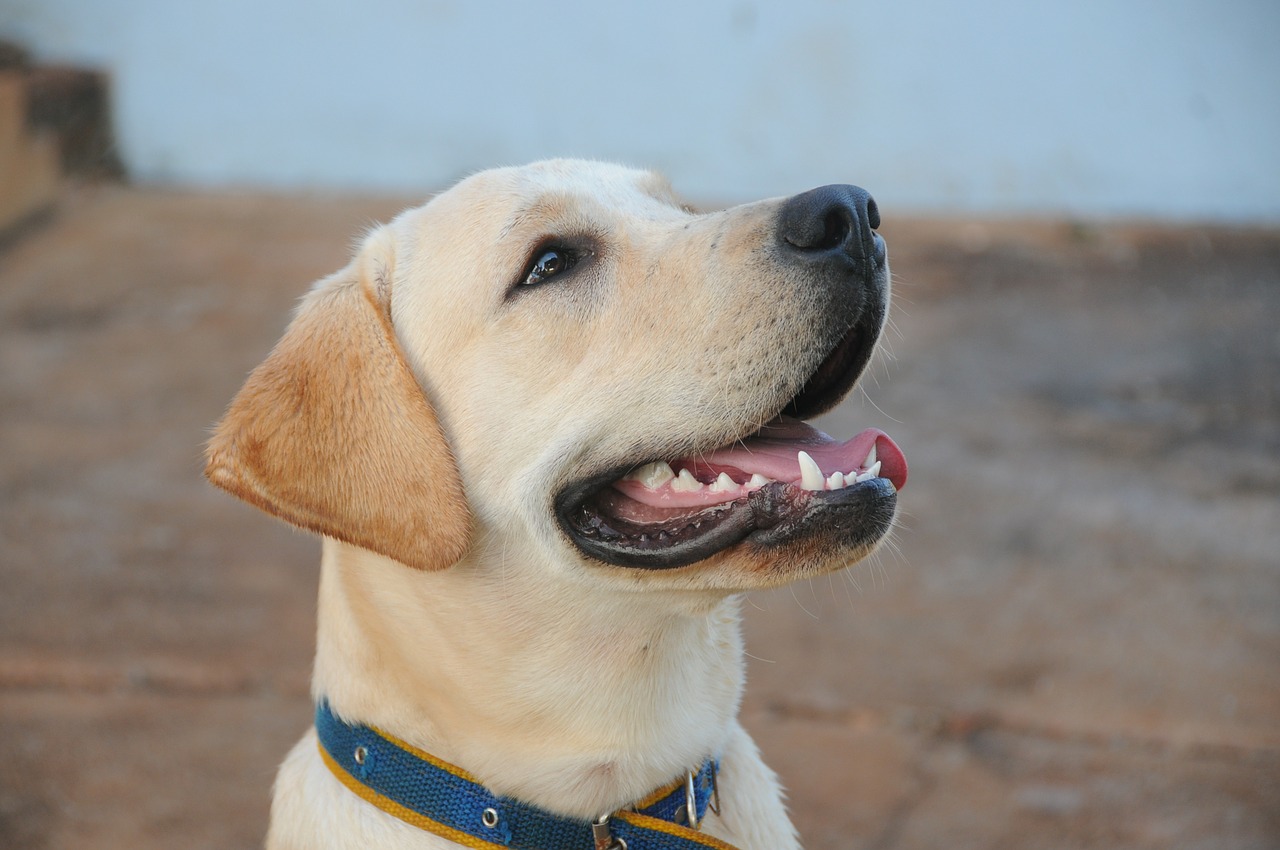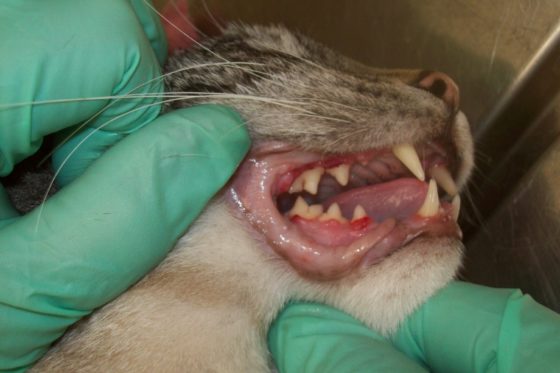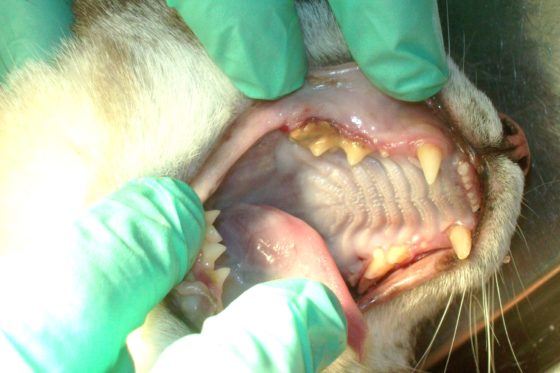February is the month that we focus on education about dental disease and the need for pets to have professional cleanings to remove tarter and decay that has built up on their teeth over the years. Many pet owners do not know that this is an important part of care! Most pets have some form of dental decay as early as 3 years of age since most owners chose not to brush their pets’ teeth daily. Brushing a pets teeth is the best way to keep them healthy. There are chews and special treats and diets that are helpful when attempting to freshen your pets’ breath or reduce tarter. Yet, nothing seems to work as good as regular brushing. It is important to prevent your pets from chewing on items that are harder than the surface of their teeth. These items, such as bones, antlers, rocks, and hooves, will often cause fractures or flattening of the tooth surface. It is best to avoid these and keep your pets’ teeth healthier through the years.
Many studies have shown that poor oral health can have significant effects on other organs within the body. The biggest concern is with the heart, liver, and kidneys as bacteria becomes systemic and deposits within these organs. When pets have bad teeth, they often will not chew their food and that leads to more tooth decay. In recent years veterinary dentist have surfaced to help fix fractured teeth to prevent pain associated with the exposed pulp cavity. They have improved the bite of young dogs that were born with congenital defects of the jaw. Veterinary Dentists have repaired cavities to preserve the tooth that has been damaged. Advanced veterinary care has continued to improve the quality of our pets’ lives. These procedures are not for every pet but it is important that pet owners know their options. If you are interested in learning more about Veterinary Dentistry, we can refer you to the specialists.
If you have noticed odor from your pets’ mouth, I would encourage you to flip up their lips on each side and look at the teeth and gums. If you see more brown than white on the surface of the tooth or notice extremely red gums above the tooth surface, your pet is in need of a professional cleaning. I wish we could clean a pets’ teeth without anesthesia, but pets could not remain still during the cleaning/polishing procedure. The biannual exams and cleanings humans receive are difficult for some of us so image how a cat or dog would react. I know anesthesia is a concern but ignoring a pets’ oral health is a huge risk as well. Once a professional cleaning has been done it would be wonderful if you began home care to reduce the build-up in the future. Brushing your pet’s teeth is the most effective way to prevent tarter build up. Other options include special prescription diets that will reduce tarter when the pets chew the kibble. A new product called “Oravet” can protect a dog’s teeth and offer fresher breath if offered once a day. Finding a healthy chew or toy that your pet will chew on at least 15 minutes a day can promote healthier teeth and gums. Avoiding soft foods and treats that stick to the teeth is helpful. There are any number of items that can help reduce tarter build up but nothing is more effective than brushing your pet’s teeth.
Teaching a pet to allow brushing of their teeth is much easier to do when they are a young puppy or kitten. At an early age we see more success in getting acceptance of handling their mouth and introducing the toothpaste/toothbrush. Starting this routine early, many pets will find it a fun daily event and look forward to it. The following video was created by a client of ours that has been brushing her pet’s teeth for a number of years. The teeth look amazing and she has yet to do a dental procedure on any of her pets. It really does make a difference if you are willing to take the time to brush daily. It is possible to teach an old pet to allow you to brush their teeth. It requires more patience and persistence but the rewards are worth the time and effort.
Click to view video of brushing pet’s teeth:
With the cold winter days, it makes getting outdoors with your pets next to impossible. Why not start working with them to allow you to brush their teeth? Why not schedule a professional dental scaling to improve your pets’ oral health and reduce risk to other internal organs? Your pet will thank you and those kisses will be more enjoyable.


